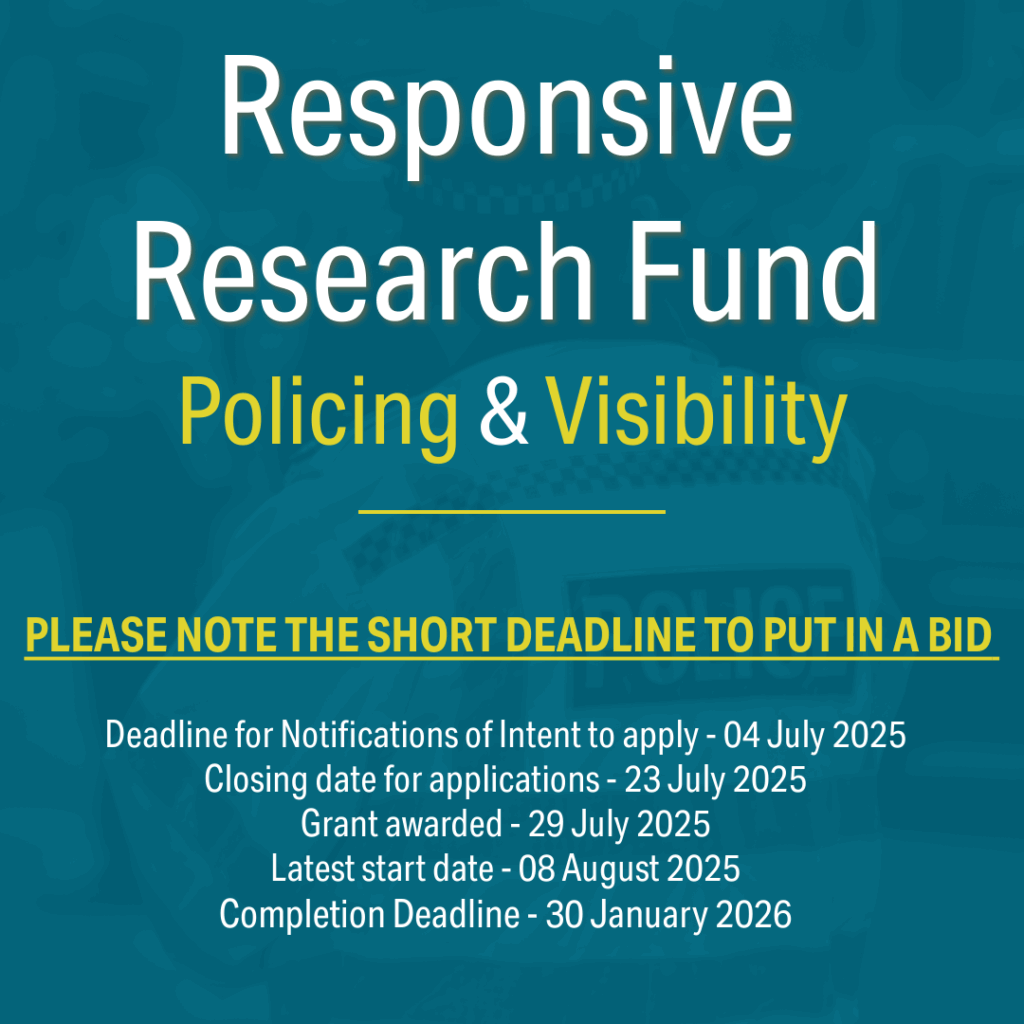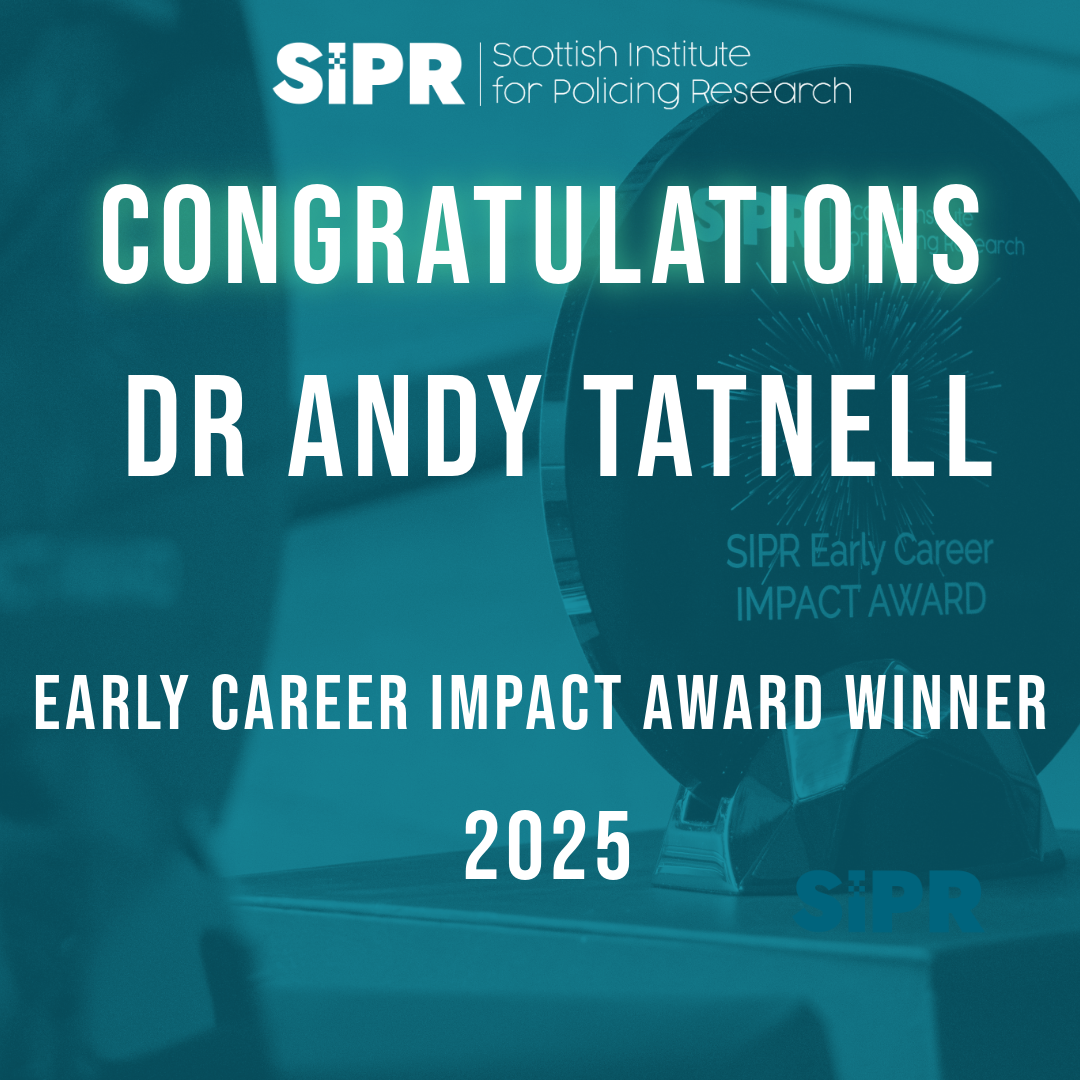
Scotland’s first “International Graduate Summer School for Policing Scholarship” was recently hosted by SIPR and the Center for Evidence Based Crime Policy at George Mason University, Washington, at the University of St Andrews. This training school, which ran over four and a half days, was attended by 20 American, Norwegian and Scottish postgraduate students, all of whose individual research contained a policing element. We are delighted to present this Blog by Elaine McLaughlin, from Glasgow Caledonian University, who discusses the impact of the experience of the Summer School on her own research. SIPR hopes to be able to repeat the Summer School as a biennial event.
The students were presented with a full programme. The areas explored included: research design and ethics in policing research; theory and policing research; working with different types of data; using research in practice; contemporary issues in policing and writing for publication and policy. The academics who attended were experts in these subject fields.
A similar format was adopted daily whereby twenty minute presentations were delivered by academics. There was an opportunity for the students to raise questions, comment or make general observations immediately after each presentation. The students and academics thereafter attended workshops to discuss and share information. This was beneficial for a number of reasons. The composition of the workshops changed every day, this allowed the students to get to know each other and learn about individual research topics. During the workshops students and academics alike were given the opportunity to exchange their knowledge and experience relative to the particular presentation. There was an opportunity to attend workshops more relevant to individual research. Students were able to discuss their own research and raise specific issues. It was a supportive environment and students were encouraged to contribute and raise any potential challenges.
Midweek a trip was organised to the Scottish Government to meet with representatives from the Justice Analytical Services department. This department is responsible for the collation of data (qualitative and quantitative) pertaining to police issues affecting a range of stakeholders within Scotland. It was interesting to learn the procedures and machinations involved in data collection, evaluation and dissemination.
Certain aspects of the summer school did resonate with me. The presentation relating to ethnography was relevant to my research with marginalised women. The information presented required me to reflect, to ensure that my thesis is communicating the ‘voice’ and social reality of immigrant women. The importance of reflexivity whilst interpreting qualitative data was raised. This concept is associated with feminist research, as it is used to recount women’s stories. The methodological and ethical challenges that prevail within policing research were highlighted. The positionality of the researcher within the research process was explored. Here I reflected upon my place in my own research as a white woman researching women from a South-Asian background. I found myself re-examining my own ethical position, values and biases, and the significance of being subjective and objective. Recognising the concept of insider/outsider status was discussed in the workshop when researching individuals, police policy and practice.
The session relating to writing for publication and policy identified potential pitfalls. The successes and challenges of collaborative writing were discussed as well as the importance of ensuring the relevant academic journal is selected for publication.
It was an intense and informative week. The atmosphere was relaxed and supportive. There was a diverse range of policing research discussed and explored. The students and academic staff were friendly and approachable.
My enthusiasm in attending the summer school arose from my PhD. My research involves an examination of the impact of the UK spouse visa immigration rules on immigrant women living in Scotland experiencing domestic abuse. Qualitative interviews identified the women had contact with the police in relation to the abuse and mistreatment they endured, on occasion at the hands of multiple perpetrators. The data obtained highlighted the unique constraints women encounter when considering leaving an abusive relationship whilst subject to an insecure immigration status. The women experienced numerous difficulties when attempting to contact the police for help and protection. A range of measures were implemented by the police to support the women. Data analysis identified the successes and challenges encountered by the police when dealing with immigrant women.
Policing research is not my area of expertise. My educational background is in Law and my research interests’ concern gender based violence, feminist/gender theories and forced marriage. I have extensive experience of working with police officers in my current employment. My PhD research and current experience of working with senior police officers specialising in domestic abuse has kindled an interest in developing my knowledge in relation to theoretical perspectives and evidence based police research.
Despite policing research being unfamiliar, from an educational perspective, I left the school better informed. In particular in relation to policing theory and practice, methodology, qualitative and quantitative research methods, evidence based policing, research design, collaborative research and the use of social media. I have benefited from the summer school. I intend to draw upon this learning experience in future police research I undertake whilst considering what the research is ‘on, with and for.’
Comments are closed, but trackbacks and pingbacks are open
This work is licensed under a Creative Commons Attribution-NonCommercial-NoDerivatives 4.0 International License



